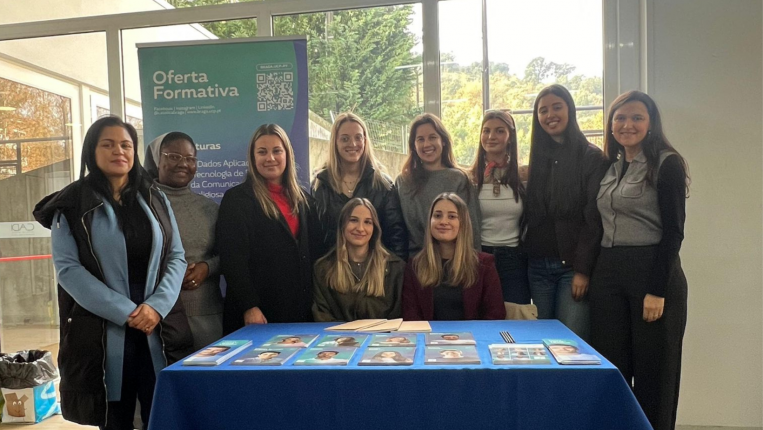
On May 6, the SerSocial Social Service Student Commission, in partnership with CAB, organised a lunch meeting at the Portuguese Catholic University in Braga, dedicated to reflecting on Pope Francis' legacy in the fight against poverty and social exclusion.
The meeting was attended by student Damiana Ribeiro, director of the SerSocial Commission, Miguel Ribeiro, a CAB member, Social Worker Sílvia Gonçalves and Fr Bruno Nobre, Director of the FFCS.
In her speech, Damiana shared a personal testimony, emphasising how Pope Francis' social thinking has been an inspiration to the students. She mentioned the importance of the encyclicals Fratelli Tutti and Laudato Si, and how they encourage a vision of fraternity without borders and social justice that also integrates environmental justice. She also emphasised the impact of international projects in which she has participated, including an award-winning service-learning project that culminated in an audience with the Pope.
Sílvia Gonçalves, a social worker in the Student Support Office, emphasised the transformative role of education, especially for students with greater economic and social difficulties. Quoting Pope Francis, she emphasised that education is an act of hope and an antidote to exclusion. He also shared the essential work that is carried out on a daily basis to guarantee support, welcome and inclusion for all students, regardless of their origin or social condition.
Miguel Ribeiro recalled Pope Francis as an example of progress and commitment to humanity, emphasising his ability to walk with people and seek solutions to the world's great problems. He emphasised the Pope's affection for the world and for people, also recalling his remarkable experience during World Youth Day.
Bruno Nobre highlighted the balance between the public and intimate dimensions of Pope Francis: a man capable of mobilising crowds, but also deeply attentive to personal encounters, small groups and the most fragile communities. He recalled how the Pope always found time to visit poor neighbourhoods and meet up with friends - someone who put himself on the margins, with heart, intelligence, compassion and mercy, but also with concrete action. An example of this was the donation of the papamobile, which was transformed into a mobile health unit for children in the Gaza Strip. Bruno also challenged the young people to read the encyclicals Fratelli Tutti and Laudato Si, recognising in them a source of inspiration and commitment.
This moment of sharing and reflection reinforced the commitment of future social workers to a professional practice that is humanist, critical and committed to the most vulnerable - in line with Pope Francis' call for conscious, supportive and transformative social action.



